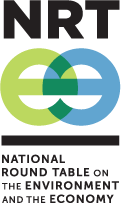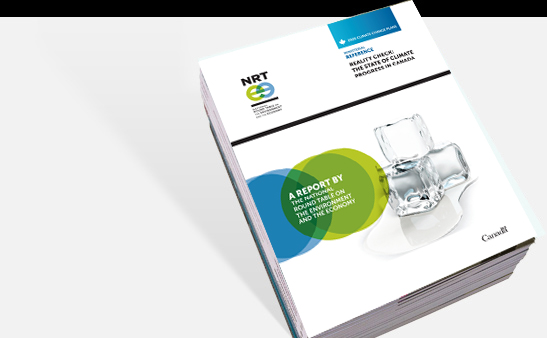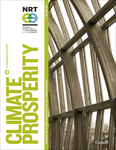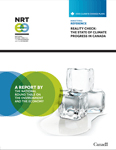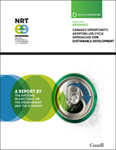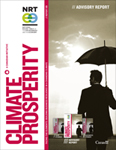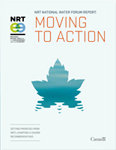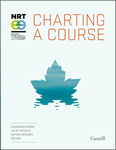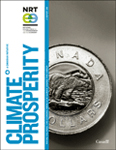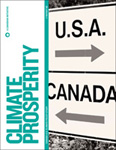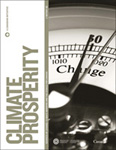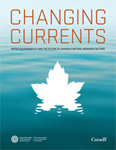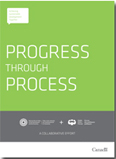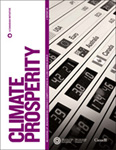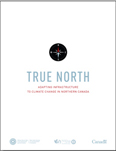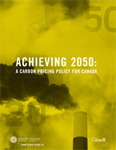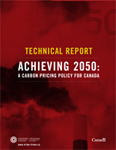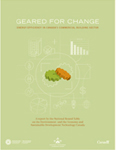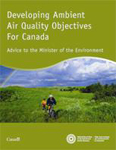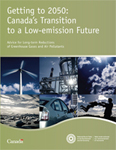Media Backgrounder – November 17, 2011
Charting a Course – Sustainable Water Use by Canada’s Natural Resource Sectors
BACKGROUND
- Part of the NRT Water Sustainability Program
- Report 1 – June 2010 – Changing Currents, looked at the current state of water use by Canada’s natural resource sectors and identified key issues:
- Data on precise actual water use and access to such data is limited
- Approaches to allocating water increasing outdated in Canada
- Monitoring and managing water is a shared jurisdictionresponsibility, which creates confusion
- Overall lack of capacity and expertise across the country to manage water resources
- Impacts of climate change expected to transform the way Canada manages water resources
- Report can be found at: http://nrt-trn.ca/water/water-sustainability-and-the-future-of-canadas-natural-resource-sectors-2/changing-currents
- Report II – November 2011 – Charting a Course, provides information and advice to ensure the sustainable use of water by Canada’s natural resource sectors
- The report follows a year of research by some of Canada’s top experts in water issues. Much of this research was strengthened by involving and engaging many experts, industry representatives, government officials, and water managers across Canada
- NRT created an Expert Advisory Committee and also held 13 meetings over the course of 2010-2011 to assist with scoping the project, testing the research results, identifying potential solutions, and providing us with feedback on preliminary conclusions
- Natural Resource Sectors include:
- Agriculture
- Manufacturing
- Mining
- Oil and Gas
- Pulp and paper
- Thermal electricity
WATER USE BY CANADA’S NATURAL RESOURCE SECTORS
(Chapter 3 – p. 44-66)
- The natural resource sectors use and consume more water than any other sectors in the nation, accounting for approximately 86% of Canada’s water use intake in 2005
- According to economic forecasts, the sectors are expected to experience significant growth, ranging from 23% to 58% by 2030. The resulting increase in economic activity will result in an increase intake in all sectors, except thermal electric power generation between 2005 and 2030. See Table for forecast of water intake by sector (insert link to table 4 here)
OVERALL FINDINGS
-
Sustainable water use is essential for prosperous economic development and for healthy ecosystems, which requires comprehensive approaches to water governance and management that:
- Value our water
- Improve our understanding of water supplies and demands, now and in the future
- Are adaptive to changing water circumstances and includes pricing and voluntary corporate initiatives
- Are based upon significantly improved water data and information bases
- Recognize and utilize more governance approaches, involving all water users
-
Guiding principles:
- Water has value in economic, environmental and social terms – and should be managed in trust without harm to its sustainability or that of the ecosystems in which it occurs
- Water must be conserved and used efficiently
- Water governance and management should be adaptive
- Water governance and management should be collaborative
-
Finding and recommendations in four areas:
- Water forecasts
- Water quantity data and information
- Collaborative water governance
- Policy instruments
1. WATER FORECASTS
Findings
- Natural resource sectors have steadily decoupled their economic growth from their water intake and use
- National increased water intake for the sectors combined may not be significant, but this likely masks regional issues
Recommendations
- We need a much better understanding of potential future water demands by sectors, therefore:
- Governments should develop predictive tools to improve their understanding of future demands
- Governments should collaborate to develop and publish a national water forecast, based on regional watershed
- Governments and Industry need to work together to develop appropriate measurement and reporting requirements for water use
2. WATER QUANTITY DATA AND INFORMATION
Findings
- Lack of publicly available, reliable water-quantity data has negative implications for current and future water-resource management in Canada
- Provinces and Territories would benefit from developing a “tool kit” of water quantity measurement techniques
Recommendations
- To improve our knowledge base regarding water use, provinces and territorial governments should:
- Develop demand-side data systems, with clearly defined reporting requirements for license holders
- Develop common measurement techniques for collection of water-quantity data
- Research sector-specific future water data needs
- Develop water portals which connect with a national portal lead by the federal government
3. COLLABORATIVE WATER GOVERNANCE
Findings
- Common challenges include:
- Lack of guidance and unclear mandated authority
- Membership – often changing, sometimes uneven representation
- Lack of data
- Jurisdictional fragmentation
- Consensus-driven approach
- Resource intensive process – time and funds
Recommendations
- To improve our knowledge base regarding water use, provinces and territorial governments should:
- Governments should affirm the legitimacy of collaborative water governance approaches
- Governments should recognize that collaborative water governance structures require clear roles and responsibilities and well-defined accountability rules
- Collaborative water governance processes should be developed and implemented in coordination with other planning processes and policies
- Governments should provide incentives for participation
4. POLICY INSTRUMENTS
Findings
- Pricing water – large efficiency and conservation gains may be achieved with modest increases in the price of water intake
- Overall economic impacts of water pricing are modest but may be more pronounced on a sector or firm basis
- Policy options – while water pricing could be implemented in the short term, water trading is long term option
- Voluntary initiative such as measuring and reporting, have an important role to play in water management improvement
Recommendations
- Governments should research the relationship between water use and pricing further before volumetric water pricing is implemented
- Policy needs to be adaptive and responsive to changing conditions
- Ensure that the appropriate legislation and regulations are in place and updated
- Stage policy options, allowing for adaptation to different circumstances
NEXT STEPS
The development of a national action plan on implementing NRT recommendations
- Multi-stakeholder meeting to discuss the issues in the report and to discuss the potential for a national action plan on sustainable water use to be held in Ottawa on January 12, 2012.
- Panelist include:
- Steven Renzetti, Brock University
- David Marshall, Fraser Basin Council
- Don Pearson, Conservation Ontario
- Mark Parent, Former Minister of Environment, Nova Scotia and NRT Vice-Chair
- Jean Cinq-Mars, Office of the Auditor General, Québec
- Anthony Watanabe, President and CEO, Innovolve Group
- Kristen Vice, Vice President, Canadian Operations, National Council for Air and Stream Improvement
